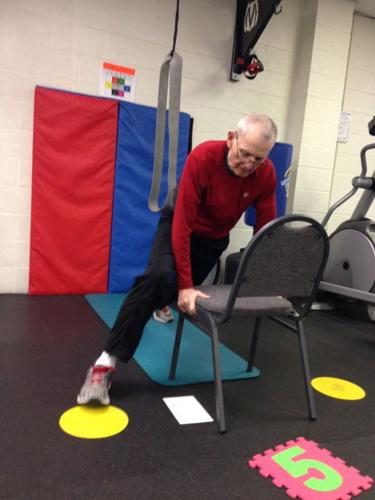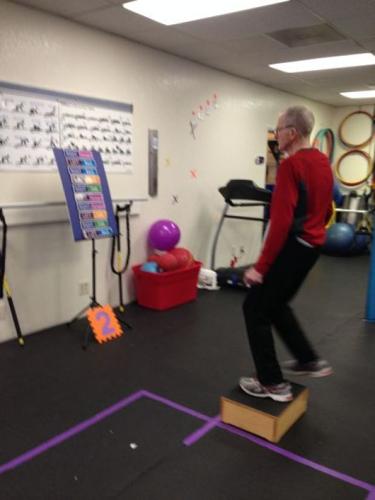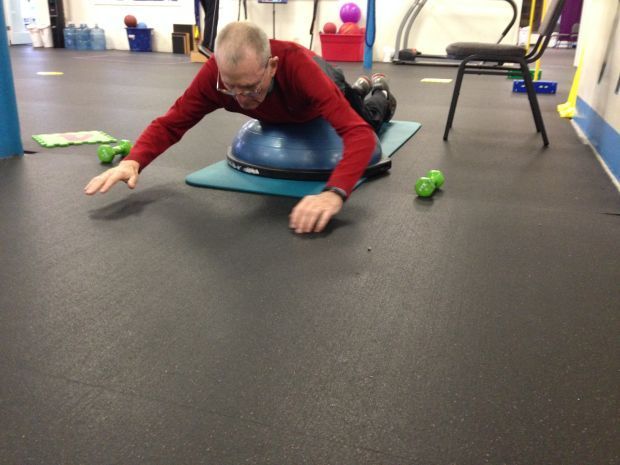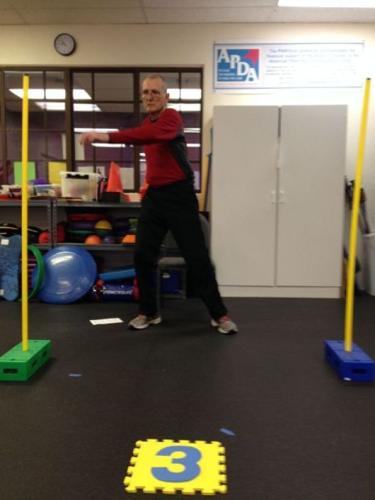Hal Cowart has worked out most of his life. The Georgia native played basketball in high school. He took up running in about 1966.
“I ran six miles a day,” said Cowart, who moved to Tucson in 1995 to be the pastor at Catalina United Methodist Church. He was superintendent of churches in Southern Arizona from 2000 until he retired in 2006. He kept running into his retirement.
A few years ago he noticed some problems with his balance. His doctor’s diagnoses of Parkinson disease also explained some other changes he had noticed.
While Cowart had heard about Parkinson disease, he said, “I didn’t really know anything about it.”
His doctor sent him to physical therapy at St. Joseph’s Hospital, and it was there that he learned about the Parkinson Wellness Recovery Gym — or PWR!Gym.
The workout
The nonprofit gym, 134 W. Fort Lowell Road, is the only one of its kind in the country. Founder and CEO Becky Farley designed a program for Parkinson patients that integrates traditional gym activities with a focus on training the whole body to improve strength, balance and cognition. It draws people from throughout the United States and Canada.
Since Cowart started there, the gym has more than doubled in size. He attends small group sessions three times a week. He also does exercises at home, and regularly jumps on the treadmill.
The coach
Farley, who has a doctorate in neuroscience from the University of Arizona and a master of science in physical therapy, hopes to offer movement classes throughout the community to reach more people. She notes recent research indicates that proper exercise could trigger physiological mechanisms that slow the progression of Parkinson.
She also recently published a book — “PWR!Moves,” which is a guide to a Parkinson-specific home exercise program.
Now 77, Cowart sees his improvement since his diagnosis as proof this program works. And his dedication is an example to others at the gym.
Next weekend Cowart hopes to take part in the Bowden PWR!Hike, which raises money for the gym. It also raises awareness that, as organizers say, people with Parkinson’s can get better and stay better with exercise.
“Exercise is a way to not let Parkinsons define who we are,” Cowart said.







